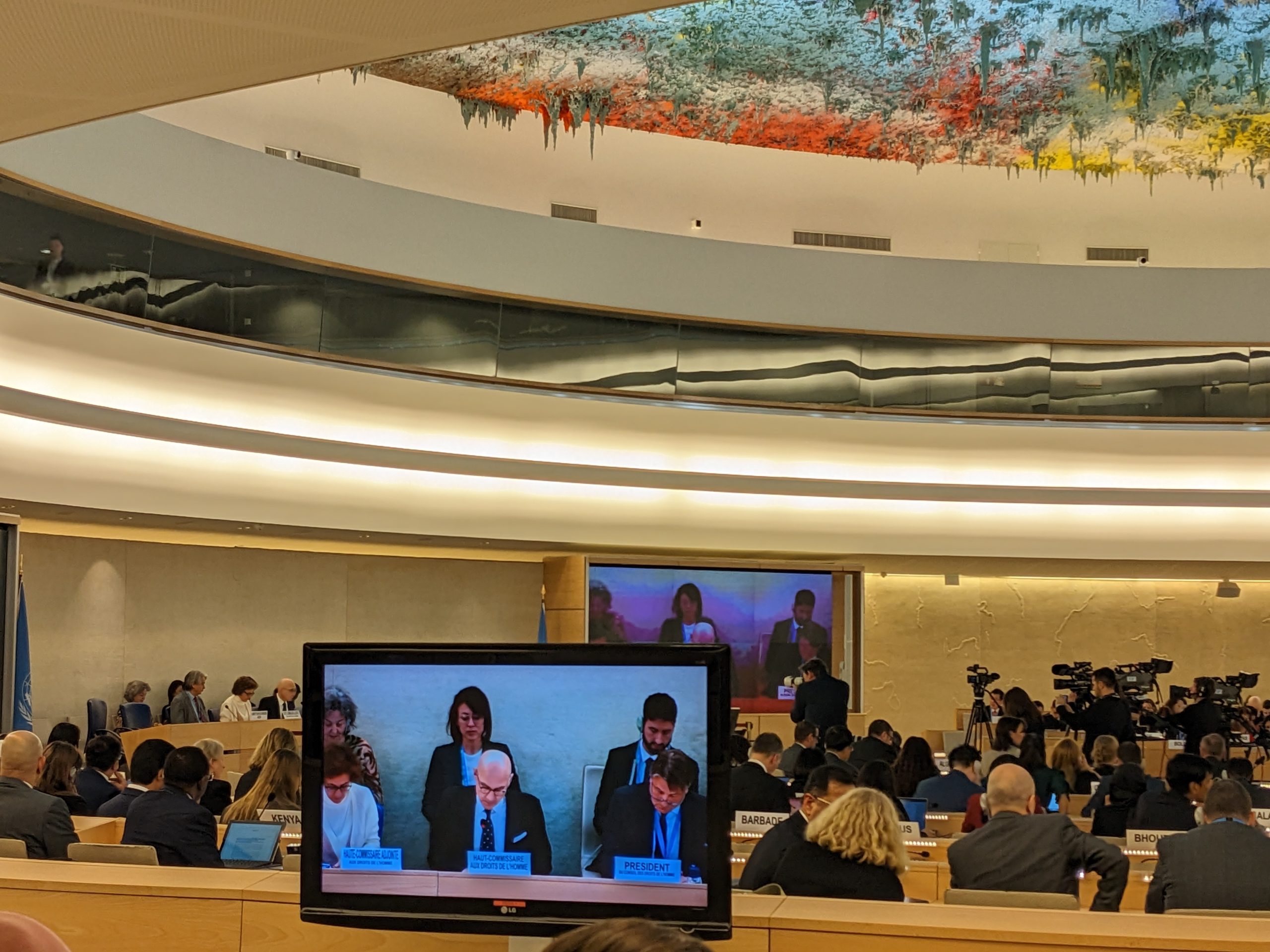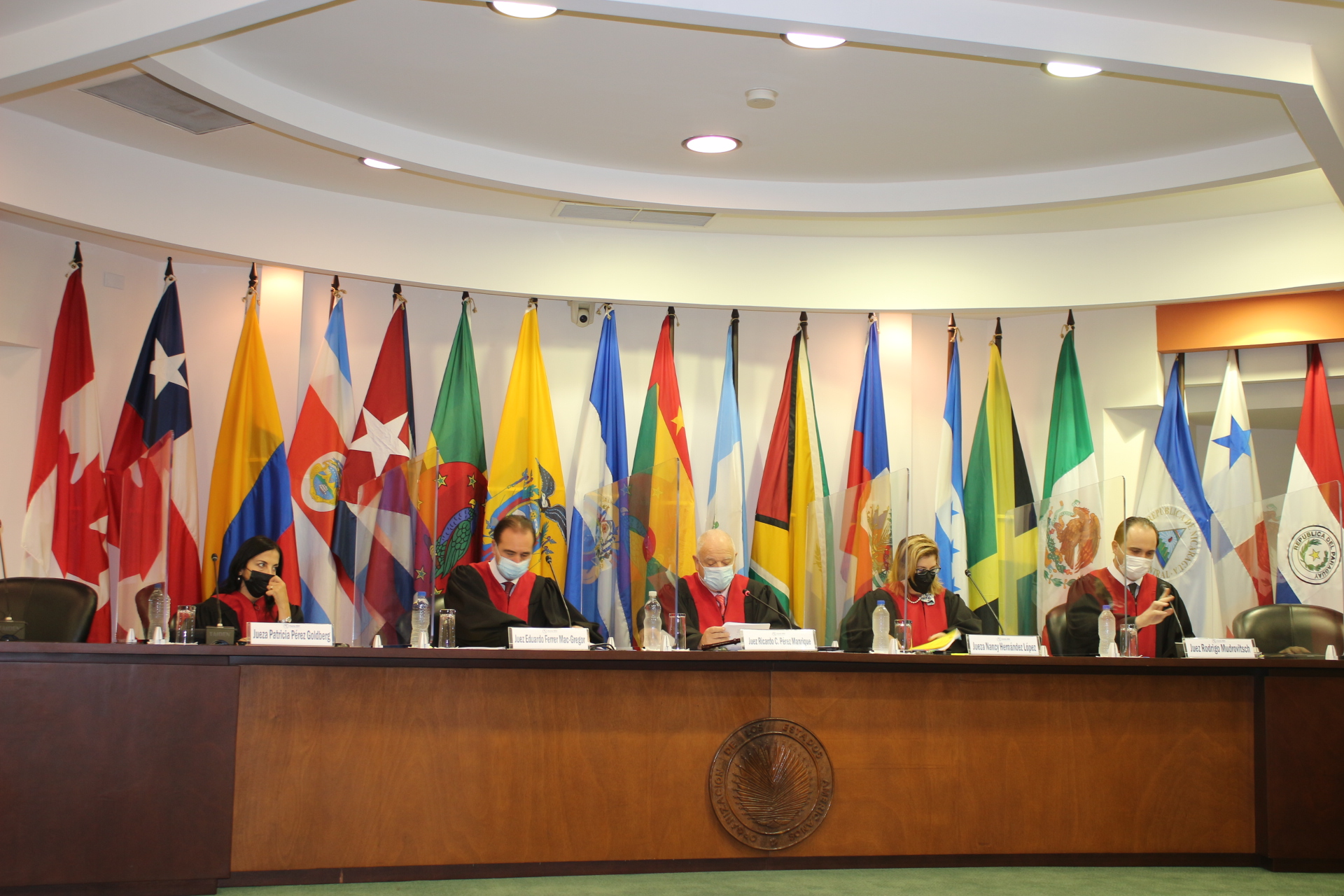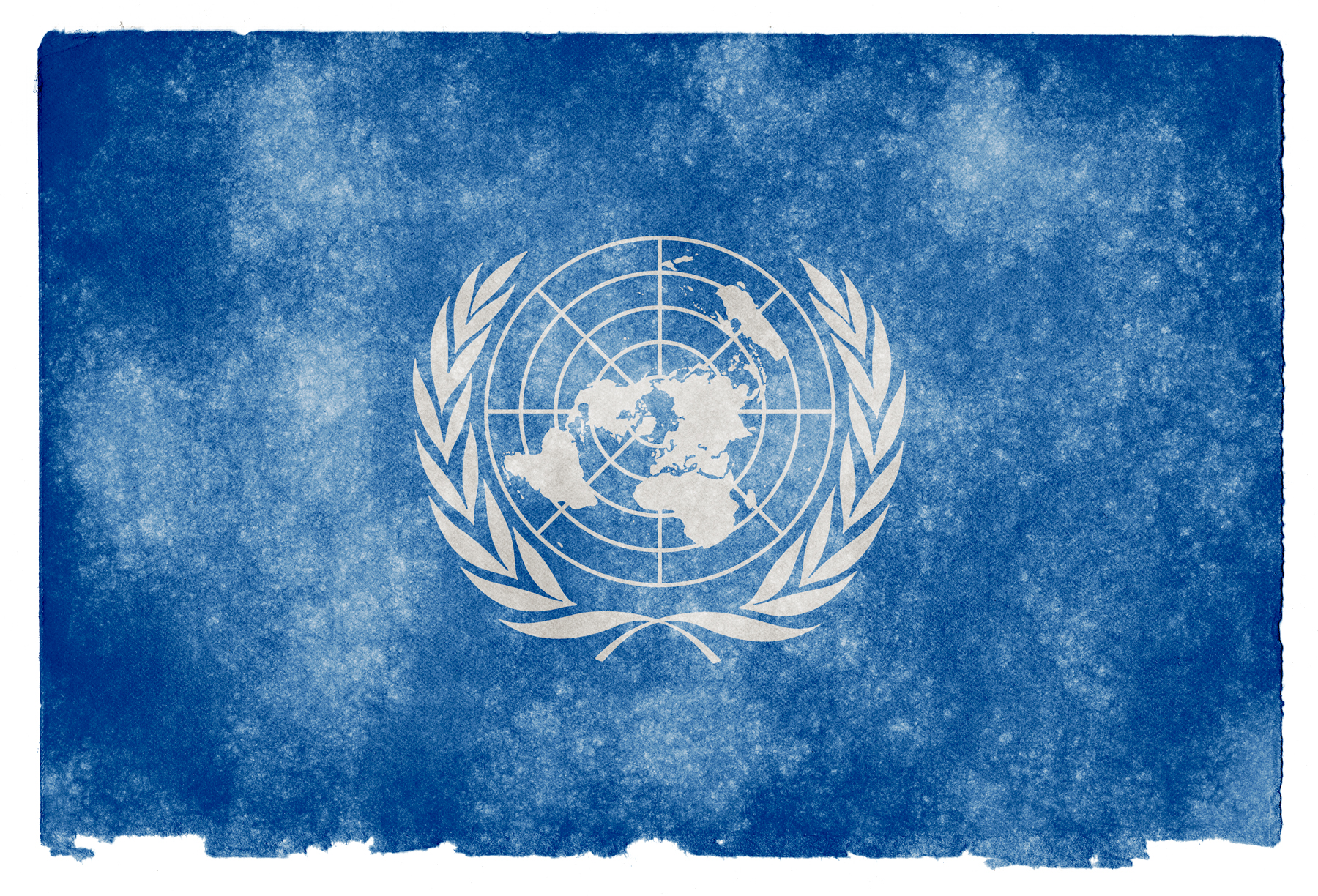During Volker Türk’s visit to Colombia in January of this year, he signed an extension of the presence of his Office in the country for another nine years. In his report to the Council, he celebrated this development, the government’s openness to collaborate as well as other significant government commitments, including to implementing the Peace Agreement. He also highlighted, however, the depth of structural and systemic problems in the country leading, amongst other things, to deep-seated impunity.
The Colombian Ambassador noted that the report was ”balanced” and that his government’s objective was to work for a Colombia where ”there was a respect for life and for differences” and where ”there was justice for violations of human rights violations.”
The Ambassador also pointed to the changes in the Colombian government as well as in his personal life (having previously been a very well-known civil society leader and UN expert). He noted that when he spoke out in favour of OHCHR prior to it establishing a presence in the country, he had been called a ‘traitor to the nation.’ Now, in government, he could celebrate the work and presence of the Office in the country.
On Guatemala, the High Commissioner noted an increase of over 70% in the number of justice operators experiencing harassment, and a 54% increase in intimidation and criminalisation of human rights defenders, and journalists amongst others.
The Guatemalan representative acknowledged the work of the High Commissioner and his representative in Guatemala but made clear that technical assistance needed to be ”in line with the priorities of the government’, noting the importance of State sovereignty in all dealings.
On Honduras, the High Commissioner noted the will expressed by the government to take action on human rights but also noted the extent of the challenge including deep-seated structural problems including poverty, impunity and risk for human rights defenders.
The Honduras representative was clear in her support of the High Commissioner. She outlined both the challenges faced by the government and the efforts to turn things around – including signing the Memorandum Of Understanding with the Secretary-General to establish an anti-corruption commission in the country.
Download as PDF




